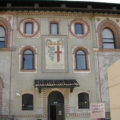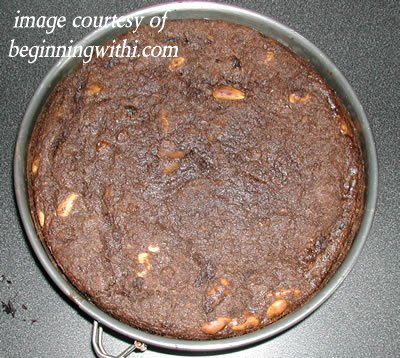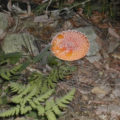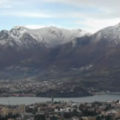I’m going to say this only once: if you value your middle-class lifestyle, America’s reputation in the world, and your personal safety from terrorism, register NOW, and vote for John Kerry in November.
No, I don’t believe that John Kerry’s a saint, nor that George Bush is the devil – they’re all politicians, everybody is in somebody’s pocket, and every election I’ve voted in has been a choice of the lesser of two evils. But it’s still a choice and, if you’re an American voter, it is your responsibility to yourself, your country, and the REST OF THE WORLD to make that choice.
George Bush’s radical religious beliefs and cultural naivete’ have taken America from a position of great vulnerability (September 11th happened, after all) to one of even greater danger and vulnerability. We are not safer than we were – far less so, and anyone who tells you otherwise is playing you for a fool.
No single person or country will be able to fix the current world situation in a hurry; it will not get fixed at all without global cooperation. Kerry’s got a better chance of obtaining that than Bush.
As for the economy, there are no quick fixes. What it needs is long-term investment in human capital: a top-to-bottom reform of the American education system. America turns out some of the worst-educated high school graduates in the world, not fit for anything but flipping hamburgers. That’s why the country is losing its competitive edge in the world, and protectionism will not help.
As for the campaign ads, speeches, etc., I suggest that you ignore them. Nothing of substance is being said. Both parties believe that a political campaign is entertainment for the ignorant masses, who (they believe) are easily swayed by words and images that appeal to the emotions (negative ones more often than positive). They’re not telling you anything useful about who they themselves are or what they will do once in office.
There is a slim hope that they might do so during the debates. But a political ad is just that – an advertisement, to get you to buy the product: “Why I’m better than Brand X” (or why Brand X is the anti-Christ). The Republicans are business people, and very, very good at marketing. But, as a sophisticated 21st century consumer, you know very well that the ad has little to do with the product – are you gonna buy that just because some Madison Avenue ad-man tells you to?
Media coverage is almost as ludicrous as what the parties themselves are spouting. Watch “The Daily Show” – at least that’s played for laughs, whereas Fox News doesn’t even realize that it’s a parody of journalism.
Oh, and one more thing: Discussion is welcome. I don’t know what the world is coming to when it’s taboo to discuss politics in polite circles, for fear of giving offense or having an argument. I have friends and relatives who will probably vote Republican and, while deploring their taste and wishing to persuade them out of it, I don’t love or respect them any the less for that – even you, gentle reader, if you are determined to vote Republican. If Bush gets re-elected and the world goes even more to hell than it already has, at least I will have the bitter satisfaction of saying: “I told you so.”
Yesterday’s disingenuous quote from Dick Cheney: “It’s absolutely essential that eight weeks from today, on Nov. 2, we make the right choice, because if we make the wrong choice then the danger is that we’ll get hit again and we’ll be hit in a way that will be devastating from the standpoint of the United States.”
Dear Dick: You know as well as I do that the United States is in danger no matter WHO gets elected. Yes, there likely WILL be more attacks, and some of them may be devastating. You haven’t done much to alleviate that risk, in fact you’ve made it WORSE.
Further reading/viewing:
The Daily Show
In their new book, “The Bushes,” Peter and Rochelle Schweizer, who interviewed many Bushes, including the president’s father and his brother Jeb, quote one unnamed relative as saying that W. sees the war on terror “as a religious war”: “He doesn’t have a P.C. view of this war. His view of this is that they are trying to kill the Christians. And we the Christians will strike back with more force and more ferocity than they will ever know.” – Maureen Dowd, NYT, Apr 29, 2004
Their beliefs are bonkers, but they are at the heart of power







